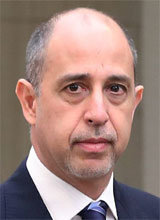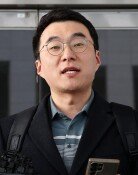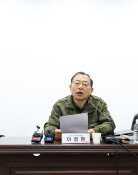UN Human Rights Special Rapporteur: Less sanction for N. Korean residents
UN Human Rights Special Rapporteur: Less sanction for N. Korean residents
Posted October. 25, 2021 07:22,
Updated October. 25, 2021 07:22

UN Special Rapporteur for North Korean Human Rights Thomas Ohea Quintana reiterated the need to reassess and lessen sanctions against North Korea mentioning economic difficulties of North Korean residents due to the COVID-19 pandemic. However, the U.S. State Department dismissed his argument by clarifying that it is the North Korean regime’s responsibility for causing its residents to suffer hardships and adversities, drawing the line at connecting impoverishment of North Korean residents to any discussion on the lessening of North Korea sanctions.
Quintana on Friday (local time) announced a briefing on key points of a report on North Korean human rights following the outbreak of COVID-19 in a press conference at the U.N. headquarters located in New York. He pointed out that trades between Pyongyang and Beijing and access to food ingredients, which are essential to livelihoods of North Korean residents, have become more difficult since the regime was faced with sanctions across the internal community with its stringent quarantine measures and closed borders.
There are growing concerns about how accessible North Korean people are to food, he said, expressing regrets that North Korean authorities warned about shooting anyone who attempts without any permission to enter the North Korean territory near the borders of North Korea and China with no prior warning. The UN special rapporteur also highlighted that North Korea is more closed and isolated than any time before amid such a high level of a closedown, making it hard to access any information on North Korean human rights.
Quintana added that North Korea faces greater isolation over time with the international community only focused on putting pressure on the regime, causing unexpected results in terms of humanitarianism and human rights. He recommended the UN Security Council lessen North Korea sanctions if necessary, when it revisits the system against North Korea given such a special situation of the COVID-19 pandemic.
lightee@donga.com







